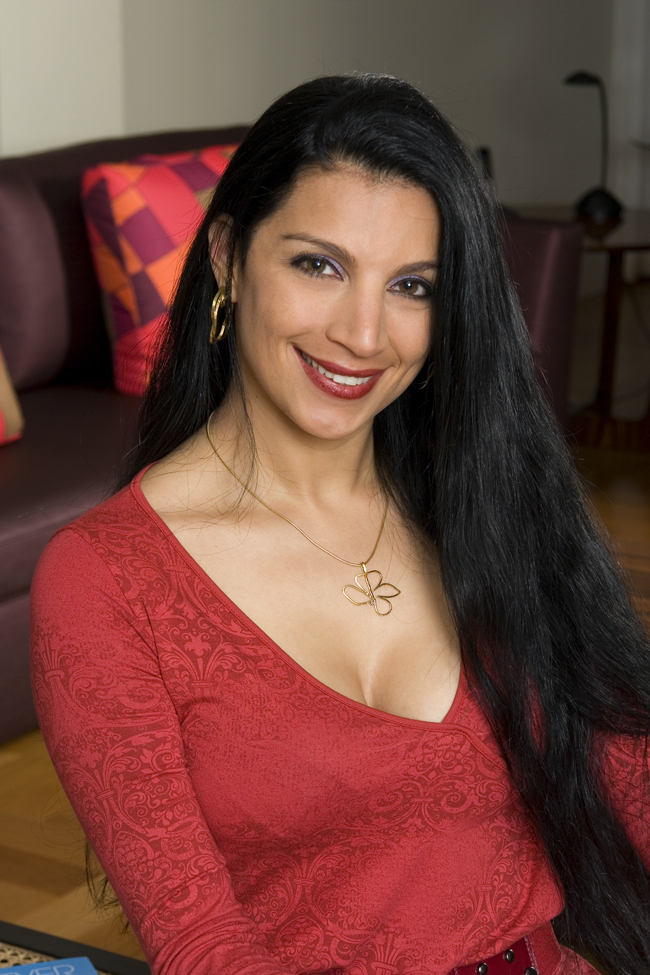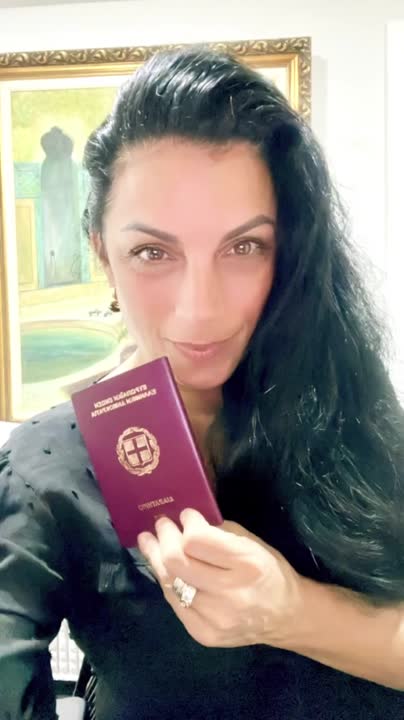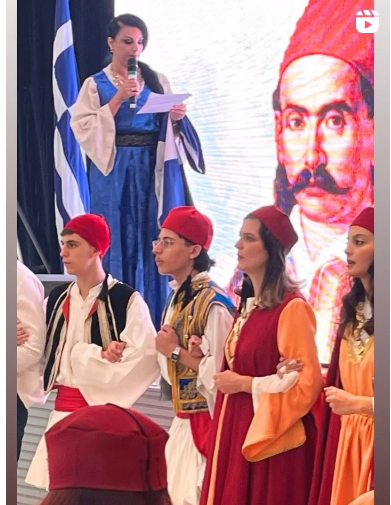Interview by Despina Dimotsi – ENGLISH EDITION, ISSUE 8
When she was a child, Elizabete Botsaris remembers her father telling her stories from his participation in the Greek-Italian war, as well as the legacy of the Botsaris surname.
Elizabete, a 46-year-old (nowadays 50 years old) architect who lives in Sao Paolo, Brazil, loved her father’s stories and feels immensely proud of her ancestral history.

DD: Welcome to our magazine. We would like you to tell us when you started looking for your roots and what was the first information you found about your legend surname.
EB: I am immensely grateful for this opportunity to express my personal story. In my childhood, the history of the Botsaris family was always present. My uncle and father always spoke of how proud we should be of our family name and how important our ancestors’ participation was in the history of Greece, especially during the Greek Revolution. I was educated at the Greek Community School in São Paulo, Brazil, so all the main Greek celebrations are also part of our annual calendar. This connection with the name Botsaris has always been very natural, however I needed to emphasize it from 2014, when I began the formal process with the Greek consulate in São Paulo, when I applied for Greek citizenship. After several unsuccessful attempts and with limitations of Greek laws, which have been updated over the years, I was able to do so.
DD: Tell us about your life in Brazil. Did you born there? How is everyday life for a Greek that lives there?
EB: I was born in 1974 in São Paulo, the most important city in Brazil. My brother Dimitri and I were raised solely by my Greek father, who acted as both father and mother to both of us. One of the reasons that led us to have most of our Greek references, such as our Orthodox baptism, is to participate in the Greek community here in Brazil and also to have our relationships within this community, in addition to contact with Greek traditions, food and customs brought by all the Greeks in the diaspora.
I regret to say that being Greek in Brazil is not easy, we have many limitations. Our community is small, there are only a few of us and there are few places that support us to maintain the Greek culture and legacy. We currently do not have a school for Greek children and we only have one Orthodox church that serves us. I can say that we feel isolated, and what connects us to our beloved Greece are the local community events and our trips to Greece, which are very costly.
DD: How was your experience with the Greek bureaucracy when you started applying for Greek citizenship?
EB: The experience with Greek bureaucracy has become a great burden on my shoulders over the years. The first time I contacted the consulate I was 20 years old and I did not receive adequate attention because Greek laws were very restrictive. After years and many updates to the laws, I returned to the consulate and began the formal process in 2014.
Supported by the laws in force at the time and also with the support of the consulate, I organized all the documents and paid the fees for the Greek citizenship process. Initially, for me, I understood it as just a documentary process.
Unfortunately, I received the first no from the Greek Ministry of Interior, with a confusing response, because Greek laws are very clear about my legal rights.
In 2018, with the support of the consul at the time, we began the naturalization process with all the corresponding documents and declaration.
During the years 2018 to 2023, I received many requests from the Greek Ministry, some asking for photos, a declaration of active membership in the Greek community in São Paulo, proof that I studied the Greek language in Brazil, as well as all the translated birth certificates with registry office stamps. There were many requests and financial expenses over the years.
They never gave me an answer for my case, they just created more demands for documents that were not foreseen, they always created a new situation that extended my case.
I always believed that my citizenship application was my right as the daughter of a Greek and that it would be something simple because I had all the documents that proved who my father was.
In addition to the process at the Greek consulate in São Paulo, I also traveled several times to Greece between 2018 and 2023 to follow my process with the help of a Greek lawyer, which consumed a lot of my financial resources.
The situation seemed to have no end, I did everything I could to have my rights respected. I truly believe that no one can take away an individual’s right to identity, and honoring this right and the name I carry, I never gave up on my goals.
I went through great humiliation, loss of time, energy and finances to have this recognition.

DD: What depicts the meaning of “Greece – Hellas” for you?
EB: My beloved Greece lives in my heart and I understand that its legacy is greater than the Greek people of today.
Understand, the feeling of being Greek is something enormous within me, it is something that was born with me and will be with me until the end of my days. I would never have had the determination that I have had during all these years and in the face of so many limitations, if I did not have this Greek blood in my veins and also the education I received from my Greek father. We are part of Greek history, even in distant places. Being Greek is not a right only for those who are born in Greek territory, being Greek is something much greater. It is having Greek blood in your heart, shouting your innate identity from the first moment of life. This is something that only Greeks at heart will be able to understand.
DD: Would you like to live in Greece in the near future? Which is your favorite Greek city?
EB: Living in Greece has always been one of my dreams. During my trips to Greece I discovered wonderful places, full of history and beauty. My favorite place is Rhodes, because it has a unique combination of everything I observed in Greece. Perhaps my father’s life as a sailor also contributed to my current preferences. Rhodes is a charming place, where I also made many friends and was welcomed by everyone.
At the moment my financial situation does not allow for a move, but I have the desire to live in a safe and simple house in Greece.
DD: Describe us how you keep our tradition alive with your gastronomy creations. How do Brazilian people act to this, do they like our cuisine?
EB: I learned how to make Greek sweets from a kind lady who is a confectioner from the Greek community here in the city. I was 12 years old and spent my school holidays cooking with her. After that, I would make sweets for family and friends, during Greek celebrations, or I would even use them as gifts for Brazilians. During the pandemic, during a difficult financial period, I started to produce Greek sweets by hand, with the mission of promoting Greek culture through my hands. To this day, I make Greek sweets for Greeks and non-Greeks. These sweets are made with great care and have authentic flavors. Brazilians are always happy to try these flavors and also use them as gifts for other friends and family, just like I did in the past. The production is not large, but it is already recognized as being of high quality among the Greeks who consume them here.
DD: How do you feel that after so many years of efforts, you managed in 2024 to get the citizenship?
EB: I feel at peace, knowing that my right has been recognized and respected. I never imagined that my citizenship application would have such a long process, that it would be so painful to acquire. I hope that my story will be an example for thousands of Greeks outside of Greece. I also hope that the Greek authorities will be more sensitive when analyzing citizenship cases. When we ask for recognition, we also have family issues that must be respected. We are not just a combination of papers at a table. We are people with an identity that must be valued. Greeks need to recognize Greeks! I believe that this is essential for cultural preservation over the years. Who will the Greeks be in the future? Have you thought about these issues? Here is my question.
DD: What are your future plans?
EB: My plan now is to calm my soul. It has been years of struggle and investment. God will guide me and bless my path as He always has. In fact, my story is another case where the right things happen in God’s time and not in man’s time. During this entire process, I have also evolved as a person, overcoming the woman I was and becoming even greater in my inner values. This is the purpose of life, to be better people every day. I would like to conclude my words by emphasizing that it is our duty to honor our history and the history of our family and our ancestors. Here I quote an excerpt I read from a book about Markos Botsaris:
May the sacrifice of the hero Markos Botsaris of Soulioti inspire us, move us and support us in the hardships we all face from time to time during our short lives. May his blessing cover us as we call upon him, we who care and fight for man to have his freedom, both internal and external. May God allow the same to happen to many other heroes, saints, creators and pure patriots of our country, who have suffered throughout the centuries for their independence and dignity.

